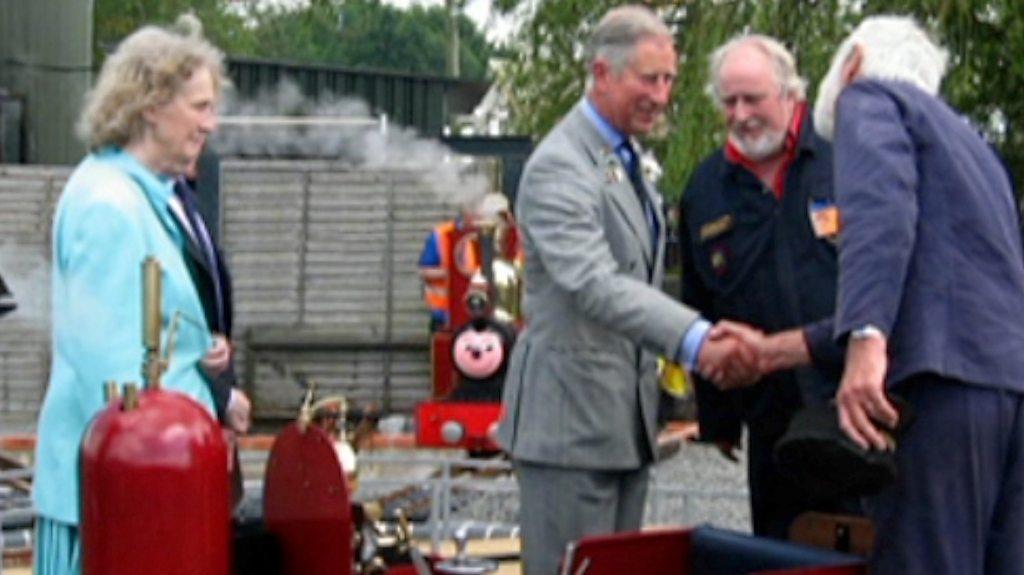RAF pilot's preparations for King Charles' coronation flypast
- Published
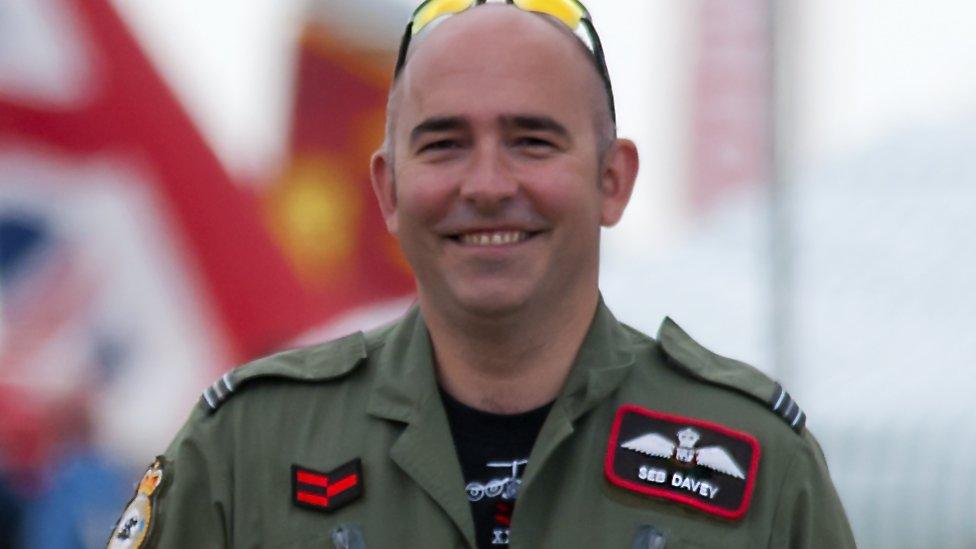
Flt Lt Seb Davey is stationed at RAF Brize Norton
Pilots in the armed forces are preparing for King Charles III's coronation flypast.
More than 60 aircraft from the Royal Navy, British Army and Royal Air Force will fly down The Mall and over Buckingham Palace at 14:30 BST on Saturday.
Flt Lt Seb Davey, 45, lives in Swindon and is stationed at RAF Brize Norton.
He said he felt "extremely fortunate" to pilot the historically significant Lancaster Bomber for the occasion.
He told BBC Radio Wiltshire: "To take part in such a momentous occasion for our country is a huge honour in itself.
"To be doing that in an aircraft as significant to our nation's history as the Lancaster Bomber just increases that honour 10 fold."
'Incredible' noise
Bomber Command's Lancaster was the main heavy bomber during World War Two.
Flt Lt Davey described the noise inside the cockpit as "incredible".
He said: "I've had the privilege of meeting several veterans from Bomber Command who are fantastic people. Most of them are deaf and I understand why - the Lancaster is a very loud aircraft.
"My favourite aspect of the aircraft is what she represents - people who served in the Royal Air Force before me and paid the ultimate price for the freedom we have today."
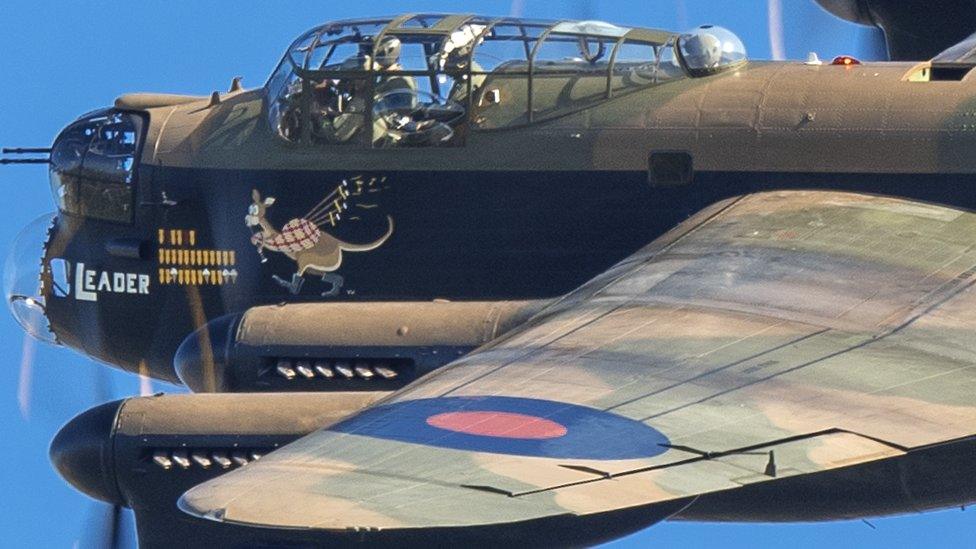
More than 60 aircraft will fly down The Mall and over Buckingham Palace
Flt Lt Davey said the Lancaster Bomber was also a favourite aircraft of Queen Elizabeth II.
He said: "Whenever there's footage shown of the Lancaster flying over, Queen Elizabeth II seemed extremely happy with a big smile.
"I think that's probably because it reminded her of around about the time that she came to the throne.
"I have no doubt that the aircraft is just as significant to King Charles III."
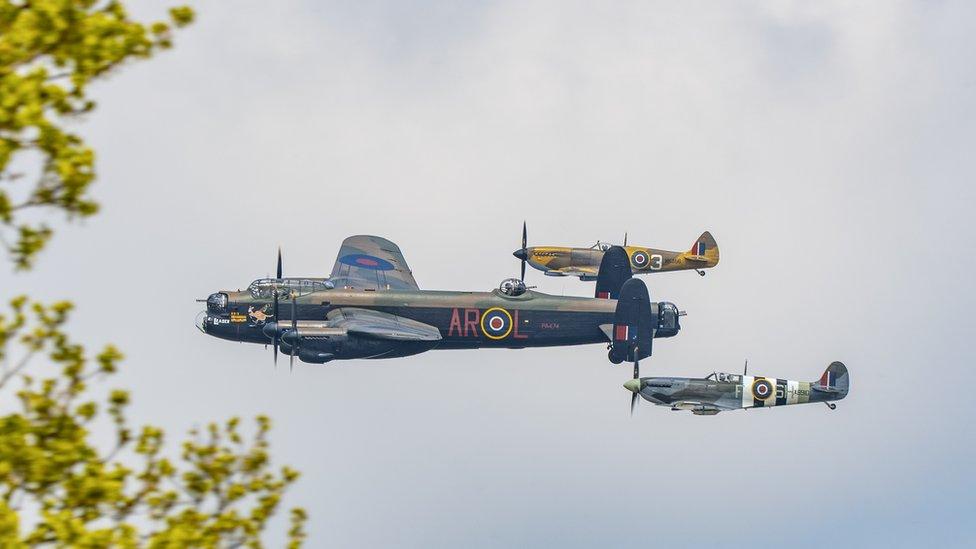
Flt Lt Davey flying the Lancaster Bomber alongside two Spitfires during rehearsals for the coronation
The 60 aircraft taking part in the King's coronation flypast are split into elements or small groups of aircraft.
Each element has a short window of time to arrive over Buckingham Palace.
Flt Lt Davey's element consists of his Lancaster Bomber, two Spitfire and two Hurricane aircraft for which he is the formation leader.
He said: "It is quite a narrow time bracket. It is plus or minus five seconds on our allocated time and that's to ensure the safe separation between all the 60 aircraft taking part.
"We had a rehearsal just to make sure the plan worked when there was less pressure and I'm very happy to say it worked perfectly.
"We were bang on time as were every single other element in the flypast."

Follow BBC West on Facebook, external, Instagram , externaland Twitter, external. Send your story ideas to bbc@bristol.co.uk.
Related topics
- Published2 May 2023
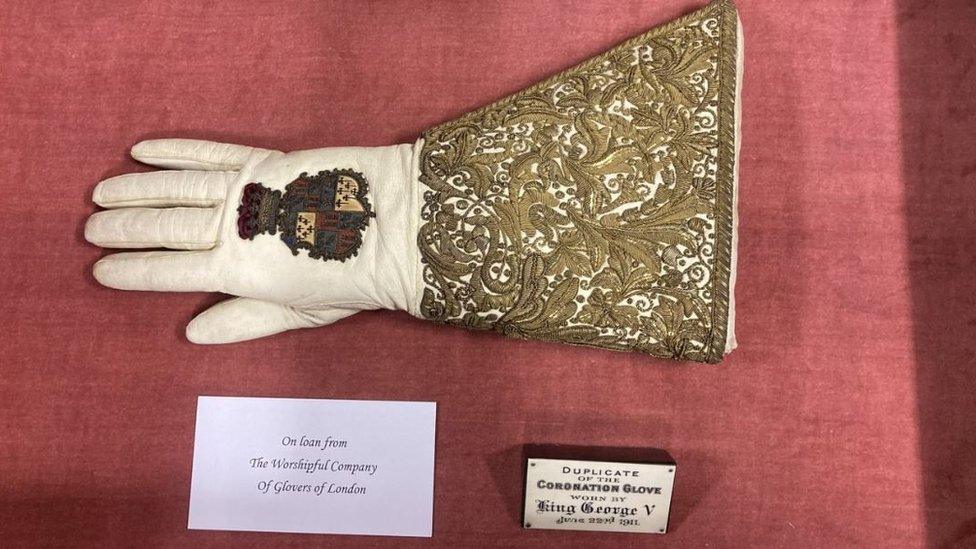
- Published3 May 2023
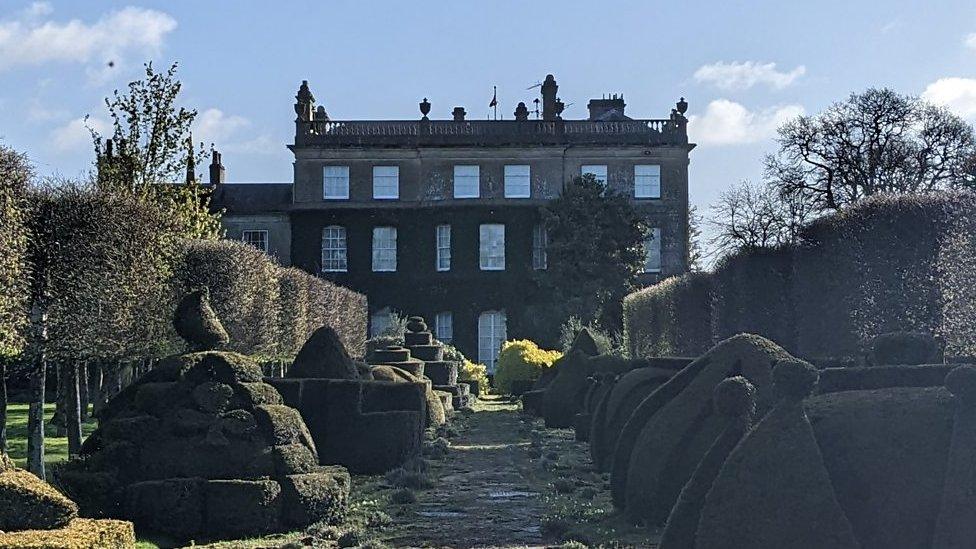
- Published2 May 2023
